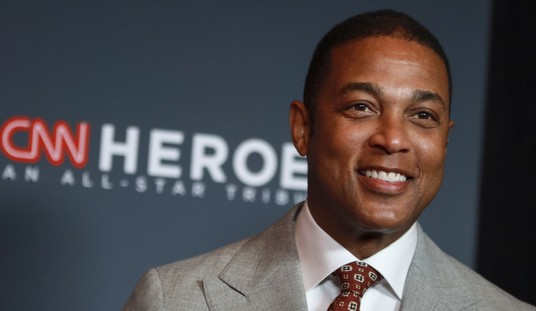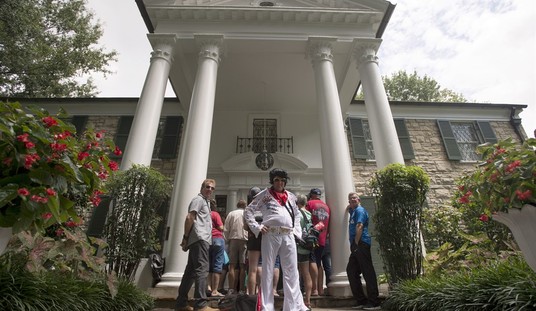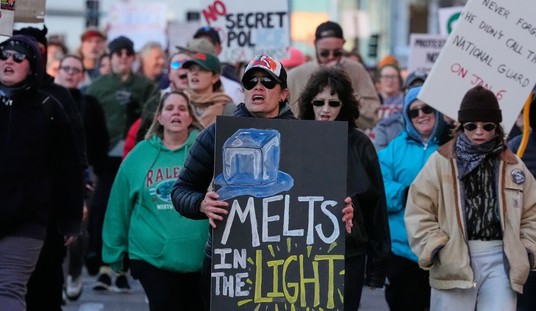In what promises to be a familiar pattern over the next four years, Kellyanne Conway helped to, um, clarify Donald Trump’s remarks about intelligence assessments over Russian attempts to interfere with the election. Trump had dismissed on-the-record conclusions about those attempts, but Conway tells ABC’s George Stephanopoulos on Good Morning America that Trump was rejecting interpretations that it made a difference in the outcome. Trump’s former campaign manager categorized that narrative together with a number of other excuses for Hillary Clinton’s loss that fail to account for Hillary Clinton:
ABC Breaking News | Latest News Videos
Adviser Kellyanne Conway today sought to clarify Donald Trump’s rejection of claims that Russia had sought to tip the balance in the U.S. presidential election by saying that “the president-elect doesn’t want interference into our politics,” and that he also doesn’t want “politics to interfere with our intelligence.”
Conway also suggested on “Good Morning America” that the Democrats had attempted to “politicize” the allegations of Russian interference to obscure the fact that Hillary Clinton and her party had failed to win over voters who proved to be critical in pushing Trump to victory.
She referenced the letter FBI Director James Comey issued in late-October that announced an additional review in connection to Clinton’s private email server, as well as the election recount efforts spearheaded by Green Party candidate Jill Stein, as other examples of politicians’ seeking to delegitimize Trump’s Electoral College victory.
“How about it was just Hillary Clinton and the message?” Conway, Trump’s former campaign manager, said this morning.
That sounds more like spin than reality. It’s true that Trump pushed back hard against the CIA’s conclusions that Vladimir Putin engineered a Trump victory. “These are the same people that said Saddam Hussein had weapons of mass destruction,” his transition team responded in a prepared statement on Friday. But as Allahpundit noted, Trump has publicly questioned even the basic conclusions that tampering was going on at all, and that Russia might have something to do with it. Conway dodges those statements as best as possible, but Stephanopoulos keeps trying to hem her in on them.
On the other hand, the FBI has also called the CIA’s conclusions into question:
In a secure meeting room under the Capitol last week, lawmakers held in their hands a classified letter written by colleagues in the Senate summing up a secret, new CIA assessment of Russia’s role in the 2016 presidential election.
Sitting before the House Intelligence Committee was a senior FBI counterintelligence official. The question the Republicans and Democrats in attendance wanted answered was whether the bureau concurred with the conclusions the CIA had just shared with senators that Russia “quite” clearly intended to help Republican Donald Trump defeat Democrat Hillary Clinton and clinch the White House.
For the Democrats in the room, the FBI’s response was frustrating — even shocking.
During a similar Senate Intelligence Committee briefing held the previous week, the CIA’s statements, as reflected in the letter the lawmakers now held in their hands, were “direct and bald and unqualified” about Russia’s intentions to help Trump, according to one of the officials who attended the House briefing.
The FBI official’s remarks to the lawmakers on the House Intelligence Committee were, in comparison, “fuzzy” and “ambiguous,” suggesting to those in the room that the bureau and the agency weren’t on the same page, the official said.
In other words, we have a mess on our hands. Both agencies agree about hostile activity against the US during the election, and probably the FBI would have Russia as its chief suspect if not outright agreeing on their involvement. It’s not like Russia’s intelligence agencies have been a model of international decorum, after all, but the FBI is apparently not at a point of certainty of the actors, motivations, or effects. For that reason alone, we need to do more digging to find out the who, why, how of the issue.
Regardless of whoever tried to interfere with the election — if that is what in fact was happening — we need to make sure it doesn’t succeed in the future. Shouldn’t we all agree on that much?
That said, Russian interference in Western elections is nothing new. It’s not even new to Putin. Ted Kennedy relied on it when secretly asking for Soviet assistance in the 1984 election, via his protege John Tunney:
Picking his way through the Soviet archives that Boris Yeltsin had just thrown open, in 1991 Tim Sebastian, a reporter for the London Times, came across an arresting memorandum. Composed in 1983 by Victor Chebrikov, the top man at the KGB, the memorandum was addressed to Yuri Andropov, the top man in the entire USSR. The subject: Sen. Edward Kennedy.
“On 9-10 May of this year,” the May 14 memorandum explained, “Sen. Edward Kennedy’s close friend and trusted confidant [John] Tunney was in Moscow.” (Tunney was Kennedy’s law school roommate and a former Democratic senator from California.) “The senator charged Tunney to convey the following message, through confidential contacts, to the General Secretary of the Central Committee of the Communist Party of the Soviet Union, Y. Andropov.”
Kennedy’s message was simple. He proposed an unabashed quid pro quo. Kennedy would lend Andropov a hand in dealing with President Reagan. In return, the Soviet leader would lend the Democratic Party a hand in challenging Reagan in the 1984 presidential election. “The only real potential threats to Reagan are problems of war and peace and Soviet-American relations,” the memorandum stated. “These issues, according to the senator, will without a doubt become the most important of the election campaign.” …
Then he offered to make it possible for Andropov to sit down for a few interviews on American television. “A direct appeal … to the American people will, without a doubt, attract a great deal of attention and interest in the country. … If the proposal is recognized as worthy, then Kennedy and his friends will bring about suitable steps to have representatives of the largest television companies in the USA contact Y.V. Andropov for an invitation to Moscow for the interviews. … The senator underlined the importance that this initiative should be seen as coming from the American side.”
Kennedy would make certain the networks gave Andropov air time–and that they rigged the arrangement to look like honest journalism.
Kind of like fake news, eh?
There seems little doubt that Russia was conducting some intelligence operations during the election period, but there’s not much evidence that it mattered. Most of Hillary Clinton’s problems sprang from her own actions, especially her unauthorized e-mail system and the transmission of classified material through it, and her pay-to-play nexus between the State Department and the Clinton Foundation. It’s curious to see the same media outlets who discounted the significance of the former, and especially the likelihood of its penetration by Russia and other hostile nations, suddenly focus so much attention on the DNC and Podesta hacks and paint those as crippling to the nation’s security. In that, at least, Conway’s correct — the main problem in this election for Hillary Clinton was Hillary Clinton, not the Russians.
This has another element of irony to it, too, as Andrew Malcolm points out:
Besides complaining publicly, has the Obama administration done something, anything, besides whine about being victimized by hackers? Maybe take responsibility and tighten security?
And why did alleged hacking only bother Obama after a Republican victory, not his own two?
In 2012, Obama mocked Mitt Romney for suggesting Russia was our top geopolitical foe. Now it’s expedient for the Democrat and minions to ensure the focus is on Moscow as foe. After all this time and those breaches, and only in his final meaningless month, does Obama order a report (which will be largely secret) allegedly to explore the allegedly Russian threats.
Because, see, that way the public discussion won’t be where it belongs: On how, after eight long years under Barack Obama the cybersecurity of America’s government and even the president’s own political party remain so pathetically vulnerable?
For that matter, why would Russia have interfered in this election? Hillary Clinton was the woman who gave Russia the “reset button,” and wanted to continue Obama’s foreign policy that has greatly benefited Putin. The more critical election for Russia would have been 2012, when Romney was demanding a recalculation of our Russian strategy and Obama was assuring Dmitry Medvedev that he’d have “more flexibility” after the election. Maybe we should be asking whether Russia had something to do with Obama’s victory rather than Hillary’s loss.







Join the conversation as a VIP Member